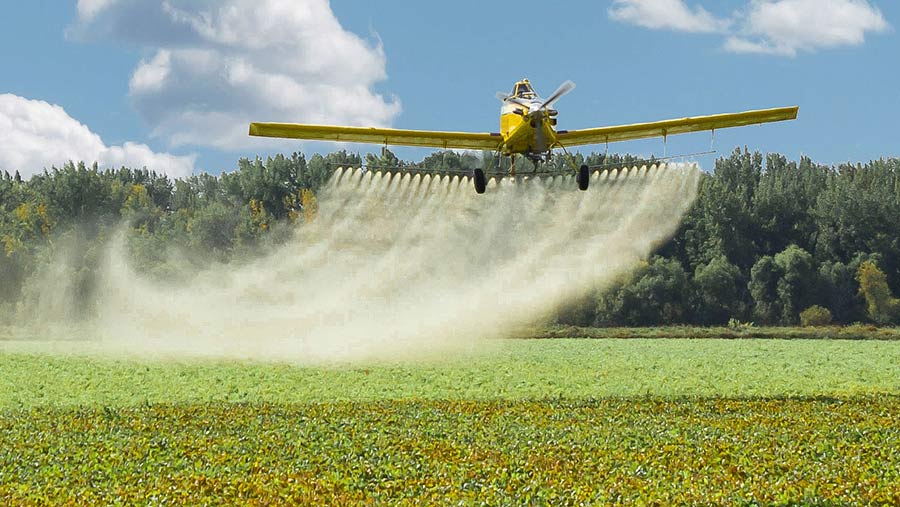Opinion: Insecticide incentive could ‘offshore’ problems
 © nat2851terry/Adobe Stock
© nat2851terry/Adobe Stock One aspect of the recently announced new Environmental Land Management (ELM) scheme that caught the media’s attention was the payment to farmers to not use insecticides.
The tone of the reporting was that this was a win-win-win for agriculture, consumers and the environment.
Nowhere in the coverage did anyone raise the possibility that this might have a negative impact on UK food production, which would, in turn, suck in more imports from abroad where insecticide use is more widespread using more environmentally damaging active ingredients.
See also: Strike action not an option for disgruntled farmers
Neonicotinoid use on oilseed rape is a good case study of how domestic bans simply offshore what is seen as a problem.
Since the neonicotinoid ban in 2015, UK oilseed rape production has halved from more than 2m tonnes to about 1m tonnes.
Not surprisingly, imports have more than doubled over the same period, and the vast majority come from countries where neonicotinoids are still widely and routinely used.
Not only does this place UK growers at a competitive disadvantage against imports, it also encourages a negative trade gap.
Neonicotinoids are not the only insecticides banned in the UK but used extensively elsewhere.
Chlorpyrifos was banned here a decade ago, but remains one of the most widely used pesticides in the world, applied to millions of acres annually. The crops with the most applications are fruit trees, often dosed by aircrafts.
This is a reminder that application methods commonly used abroad are a good deal less precise than the advanced, high-tech practices common in the UK.
A quick perusal of the internet reveals just how cavalier pesticide use can be in some less-regulated parts of the world.
Jaw-dropping videos
There are some jaw-dropping videos on YouTube of farmworkers in vests and shorts spraying pesticides from backpacks while riding mopeds or donkeys.
Defra is aware of all of this because, through its agencies, it monitors pesticide residues on foodstuffs both imported and home produced.
For instance, in its most recent quarterly report, it states that the insecticide dimethomorph was found at levels that exceeded the government’s own maximum residue levels on some imported green beans from Egypt.
Dimethomorph is another insecticide banned in the UK but widely used abroad. It is rated as having a high ecotoxity for birds, invertebrates and mammals, including humans.
The ruling was this detected residue was not a cause for concern and had no implications for human health.
Personally I’m happy with that finding. To be clear, I’m not trying to run a scare story about the dangers of imported food.
World-beating record
However, the point remains that the UK has a world-beating record when it comes to the precise way our farmers use less environmentally damaging insecticides.
Rather than simply incentivising a blanket ban on this use through ELM, would Defra not do better to encourage their judicious use in the UK by rewarding our farmers through Sustainable Farming Incentive payments for best practice, such as NRoSo training and sprayer MOTs through schemes such as the Voluntary Initiative?
Good policy needs to be thought through in terms of its overall global effect. Offshoring problems to the point where you make the global impact worse is not good policy.

